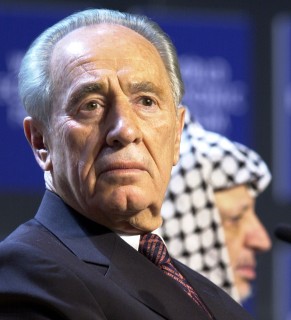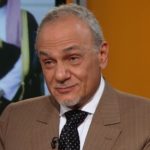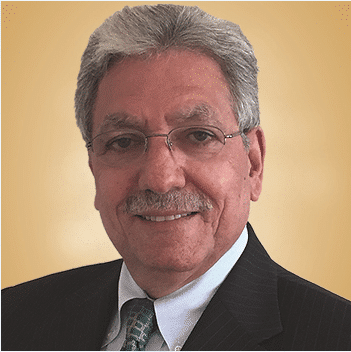

Immediately after Yasser Arafat signed the Oslo Accord with its lucrative contract to manage the Israeli Occupation, there was much excitement among Israeli and Arab capitalists, even among politicians like Shimon Perez, who were dreaming of combining Arab Money with Israeli Brains; with not much talk those days about Arab Money, wasted in wars.
There were “covert” attempts between Arab capitalists and Israelis through ownership in Credit Swiss to form a combined venture capital (Saudi-Qatar-Israel) of $1.1 billion, split evenly between Israelis and Gulf Arabs. Disputes followed and nothing happened.
The Israelis were looking for markets and capital. Certainly they did not look for the brains, since they have too much of it, and the “Arab Brains” were never on the table.
On May 5-6, during a special dinner moderated by Robert Satloff and hosted by the Washington Institute for Near East Policy, in which the main guests were Prince Turki al-Faisal, the former head of Saudi intelligence and former Saudi Ambassador to London and Washington and former Israeli intelligence chief General Yaakov Amidror, it was reported by “Scoopnest” that Prince Turki al-Faisal was reported to have said that “with Jewish Money and Arab Brains, we can go a long way”. His statement prompted me to research and write this short essay.

There is no need to quote the number of “wars” the Arabs have been engaged in, (see my post 1 November 2015), nor mention the number of trillions wasted and the loss of millions of “human capital”, also worth hundreds of billions of dollars that were wasted in these reckless and selfish wars.
If you agree with me, I can claim that the Arab world over the last 50 years has witnessed a “brain drain”, with hundreds of thousands of well-educated “Arabs” seeking safety and opportunity in the US and in Europe. Those who were hired by the best universities, research and think tanks, or science and medical research organizations have done very well. And of course, the Arab World, due to corruption, nepotism, and lack of equal opportunities or incompetence, was the big loser.
There remain many determined, committed nationalists, who continue to contribute to their countries, but who lack the kind of funding and research opportunities and grants offered by American and European universities and institutions. It is more interesting that the research budget of Arab universities combined will not equal to nor come close to the research budget of one American university.
Israel, compared to the Arab world, comes on top (18/124) according to the Human Capital Index, with a highly developed educational system leading the world exports in electronics, biomedical equipment, pharmaceuticals, agriculture products, processed foods, chemicals – certainly do not forget defense.
Arab countries were trailing in all categories, including oil-rich countries. Saudi Arabia (85/124), Egypt (84/124), Qatar (56/124), Morocco (95/124) and Tunisia (98/124). These numbers do not speak well for the Arab world or its leadership.

_________
Allow me to make a small comparison between Israel and Saudi Arabia. Israel GDP is $286,840 billion with a per capita of $38,000, and this is a small country without natural resources and with a small population.
On the other hand, Saudi Arabia has a GDP of $748 billion (2013) before the GDP was cut in half later the past couple of years. True, with a per capita income of $53,664 going down to $20,813 in 2015, it seems Saudi Arabia is far better, but only if you consider that 92.5 % of the Saudi budget comes from oil exports. Israel by far exceeds Saudi Arabia in all categories that require “brains”.
It is interesting to note that almost 15% of Israeli exports comes from small “kibbutz” with a population of 26,000 exporting $3,500 billion. I should note that small “Kibbutz” of 200 people generated $ 850 million in sales. Of course, no Arab companies were listed on NASDAQ, while all Middle Eastern companies listed were Israelis, with a market value of over $40 billion.
In comparison, King Abdul-Aziz City for Science and Technology established back in 1977 and with billions in investments and with 2,500 employees did not reach the one billion in sales.

The reason I selected Saudi Arabia as an example is because the Deputy Crown Prince, Prince Mohamed Bin Salam recognized all this and decided to reach out to international institutions and consulting firms to come with his vision for Saudi 2030. It is interesting to read all the columnists and researchers who began to tout Prince Mohamed Bin Salman’s vision, when in fact not one single Arab research think tank, including Arab Thought Forum, proposed such a futuristic plan and came up with the idea or proposed such a dynamic and daring vision.

Perhaps Prince Turki al-Faisal should reconsider his proposal, and I suggest, why not Arab money and Arab brains?
We have the talents and the commitments, and all we need is a secure and safe environment and a promising future to engage in research, and to have generous funding for research institutions and generous grants from private industries to universities.
If the “Arab Brains” can excel abroad, there is no reason for it not to excel at home.
The New Arab Foundation is committed to daring challenges and the promotion of scientific research, investments in Arab minds, commitment to education; and it will be organizing the first Arab Education for the 21st Century later this fall; and yes, we will continue to attract free, opinionated talents that can break the metal ceiling imposed by governing institutions on “Arab Brains”.
Please look forward to a very promising announcement of the Arab Brains that joined us members of the “Executive Board” of the Arab Peace Corps.
___________

Sami Jamil Jadallah is a US Army Veteran (66-68) is a graduate of Indiana University and holder of a BA, MPA ( School of Public and Environmental Affairs and Jurist Doctor and is an international legal and business professional with more than 40 years in the construction business (KSA), Management Consulting and Business Development (Swiss), Hospitality, Aviation and Conservation (Morocco). Was the first to establish an internationally recognized conservation (Houbara) foundation in Morocco and North Africa. Currently Sami is managing a conservation and wildlife foundation with 100 employees in Morocco. Sami is a recipient of the “Leadership Award” from the US Sixth Army NCO Academy and recognized student leadership while at Indiana University. Sami was a co-founder of the United Palestinian Appeal and served on its board for over 12 years. He lives in Fairfax, VA. Sami is an advocate of the OneState for All of its People as a solution to the Israeli/Zionist conflict with the Palestinians. Sami has 4 bothers who served in the US military 2 Marines and 2 Army.
ATTENTION READERS
We See The World From All Sides and Want YOU To Be Fully InformedIn fact, intentional disinformation is a disgraceful scourge in media today. So to assuage any possible errant incorrect information posted herein, we strongly encourage you to seek corroboration from other non-VT sources before forming an educated opinion.
About VT - Policies & Disclosures - Comment Policy



